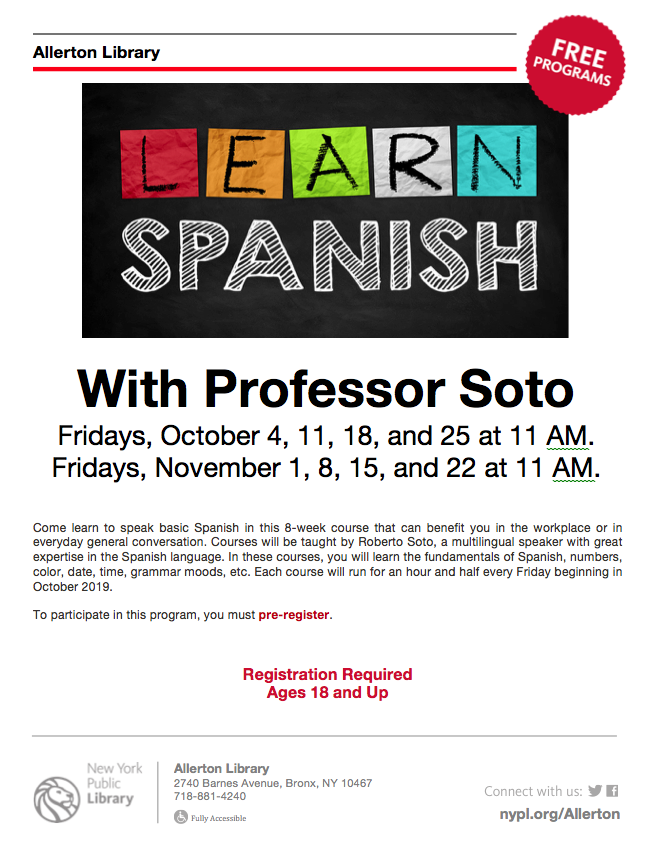
Call it whatever you wish... Learn Spanish 101, Spanish for Dummies, Make Español Great Again, #MEGA - NYPL is offering a free course. Therefore, if you wish to learn the second most popular language in the #USA. step right this way. They will take in 25 adults with a short waiting list and on a first-come-first-served basis. Registration is being done at the branch either in person or over the telephone. A thirteenth-century borrowing from Old Occitan Espagnol, Catalan Espanyol, Portuguese Espanol, French Espagnol, from Vulgar Latin Hispaniolus of Spain, from Latin Hispānus, from Hispānia.
According to phonetic rules, if inherited from Latin, the Castilian Spanish result would have been españuelo (though some argue that this did not take root because the suffix -Suelo would be perceived as diminutive; more likely, it was simply because there was no need at the time for a common secular name for all the inhabitants of Christian Iberia Spain. The word español was supposedly imported by a medieval chronicler.
In Old Spanish, there was also a form españón which disappeared after the first half of the 14th century, possibly derived from a Vulgar Latin *Hispaniōnem. Compare also Espanesco, the word Mozarabic speakers used for themselves, presumably from a Vulgar Latin Hispaniscus. Nevertheless, making small talk in Spanish is really not very difficult. The Latin culture lends itself to approaching new amigos.
Professor Soto, who has volunteered his time in community service is the type of person who would start a conversation with a stranger with What's up, or ¿Qué Pasa? This course will help you do it in Spanish by helping students find phrases and much more.
Professor Soto recalls his connection with the TV sitcom ¿Qué Pasa, USA? quepasausa.org He was one of the original faculty members at Miami-Dade Community College's Bi-lingual program with Jose Bahamonde, one of the creators of ¿Qué Pasa, USA? America's first bilingual situation comedy, and the first sitcom to be produced for Public Broadcasting. It was produced and taped from 1977 to 1980 in front of a live studio audience at PBS member station WPBT in Miami, Florida, and aired on #PBS member stations nationwide. Professor Roberto FE Soto is being recognized with a faculty appointment for his dedication to education and for serving his students.
The following are comments made about this multilingual communicator https://www.ratemyprofessors.com/search.jsp?queryoption=HEADER&queryBy=…